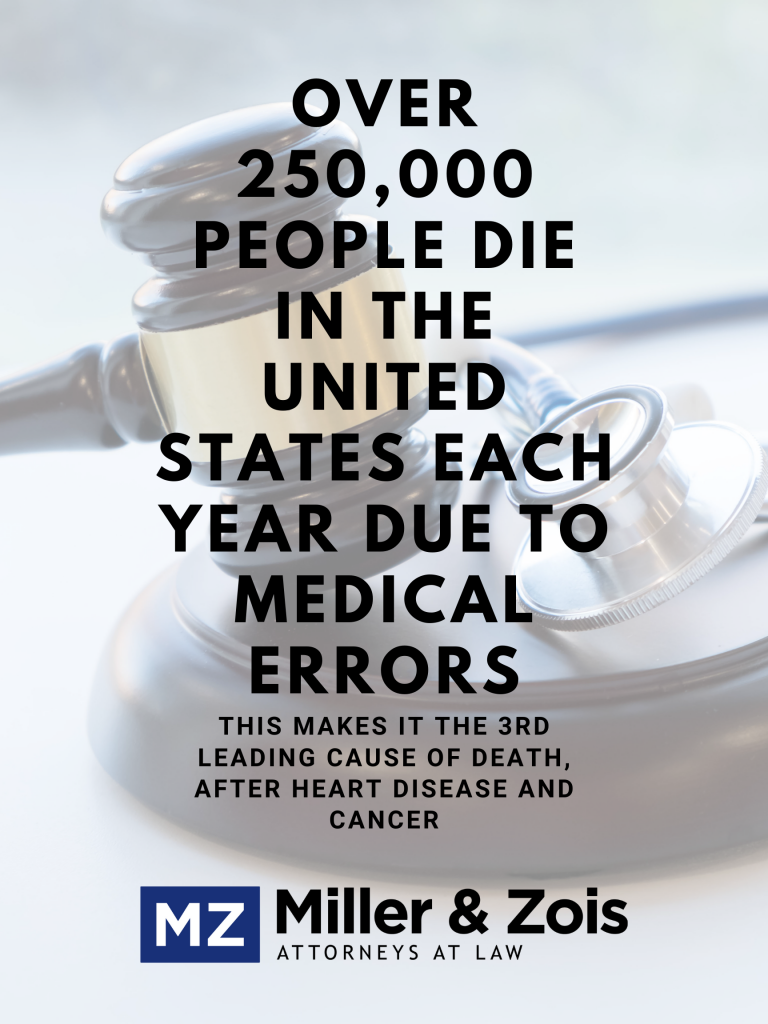We are looking at a birth injury case in Rhode Island which has given us occasion to look at medical malpractice verdicts and settlements in Rhode Island. This is just for general information.
- 2019, Rhode Island: $6,000,000 Settlement. This is just a tragic maternal death. A 21-year-old woman was expecting her first child. Her prenatal course was normal, and she arrived at the hospital to deliver her child a week after the due date. Her labor and delivery team planned for her to undergo cervical ripening by administering Misoprostol before inducing labor. However, Misoprostol was not approved for cervical ripening and there could be potential for serious complications to occur. A first-year resident gave the first dose of Misoprostol to the woman. At that time, the attending physician, who was not employed by the hospital, was at home but available via telephone. The woman’s contraction patterns became more frequent and intense shortly after receiving Misoprostol. The attending physician told the resident that she could only give Misoprostol if the contractions became irregular and infrequently. Despite the woman’s contractions being more frequent and consistent, the resident administered a second dose. The woman’s uterus contracted intensely. Fetal bradycardia developed and her cervix enlarged rapidly. Her cervix and uterus tore during the delivery. The baby was successfully resuscitated. However, the cervical and uterine tears caused a significant post-partum hemorrhage. The labor and delivery team attempted to save her, but she died from shock and multi-organ failure. Her son thankfully survived without any residual injuries. The woman’s family alleged that the hospital failed to properly oversee their resident and the resident negligently administered a second dose of Misoprostol. They claim that the woman would have survived had there been no second dose. The case would eventually settle for $6,000,000.
- 2019, Rhode Island: $36,330,000 Verdict. A 58-year-old woman visited a hospital with back pain and a recent MRSA skin infection. During her second visit, an MRI revealed signs of an infection. However, the radiologist interpreted the MRI as normal. She returned two days later, with sepsis. The woman was hospitalized for an extended period because the hospital staff failed to diagnose and treat her infection. She ultimately underwent amputations to both her legs below-the-knee and eight fingers. The woman also suffered respiratory failure, kidney failure, and a heart attack that disrupted her circulation to her brain. The jury awarded $36,330,000.
 Maryland Medical Malpractice Attorney Blog
Maryland Medical Malpractice Attorney Blog


 Throughout his young life, Gallegos overcame significant adversity because of his condition. He learned to walk at 2 years old, with the help of a walker. However, physical therapy helped improve his stride well enough that he did not need it by the time he reached Kindergarten. Gallegos initially wanted to join his high school’s football team, but his father Brent persuaded him to join the cross-country team instead. Brent and Justin spoke to his high school’s cross-country coaches Darren James and Larry David about possibly joining the team. Brent assured both coaches that their son could run three miles needed for a cross-country race, and Justin would have a strong work ethic.
Throughout his young life, Gallegos overcame significant adversity because of his condition. He learned to walk at 2 years old, with the help of a walker. However, physical therapy helped improve his stride well enough that he did not need it by the time he reached Kindergarten. Gallegos initially wanted to join his high school’s football team, but his father Brent persuaded him to join the cross-country team instead. Brent and Justin spoke to his high school’s cross-country coaches Darren James and Larry David about possibly joining the team. Brent assured both coaches that their son could run three miles needed for a cross-country race, and Justin would have a strong work ethic.
 ZHP-manufactured Valsartan could be found in various countries throughout the world. The relatively low manufacturing costs in China made it attractive for countries such as the United States to import it. While these generic drugs may be cheaper to make in China, there are fewer regulations that ensure the safe manufacture of these drugs. This is the tradeoff you get when buying some generic drug imports. Because of the discovery of NDMA in ZHP-manufactured valsartan, the European Union, Taiwan, Canada, the United States, and South Korea announced successive
ZHP-manufactured Valsartan could be found in various countries throughout the world. The relatively low manufacturing costs in China made it attractive for countries such as the United States to import it. While these generic drugs may be cheaper to make in China, there are fewer regulations that ensure the safe manufacture of these drugs. This is the tradeoff you get when buying some generic drug imports. Because of the discovery of NDMA in ZHP-manufactured valsartan, the European Union, Taiwan, Canada, the United States, and South Korea announced successive